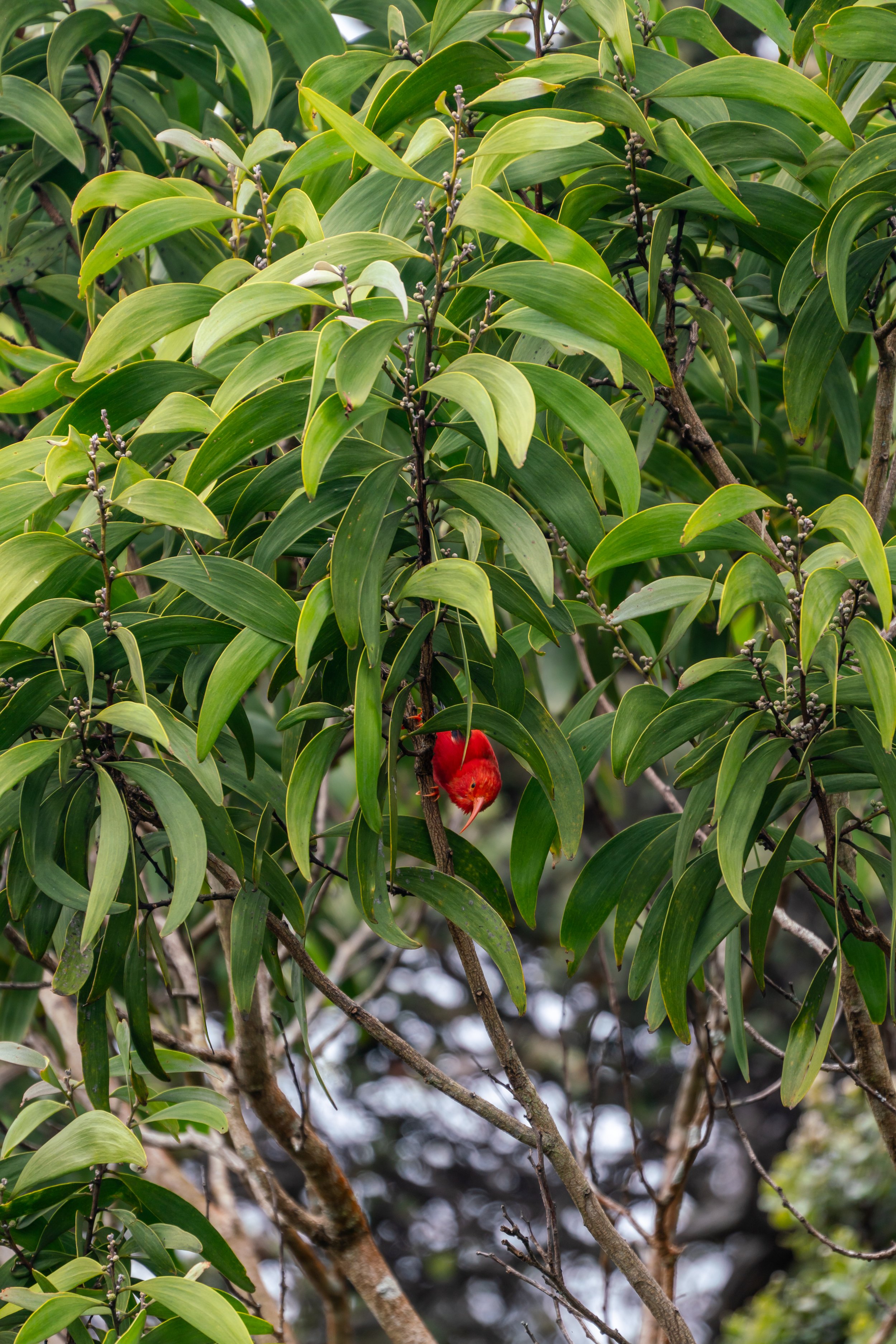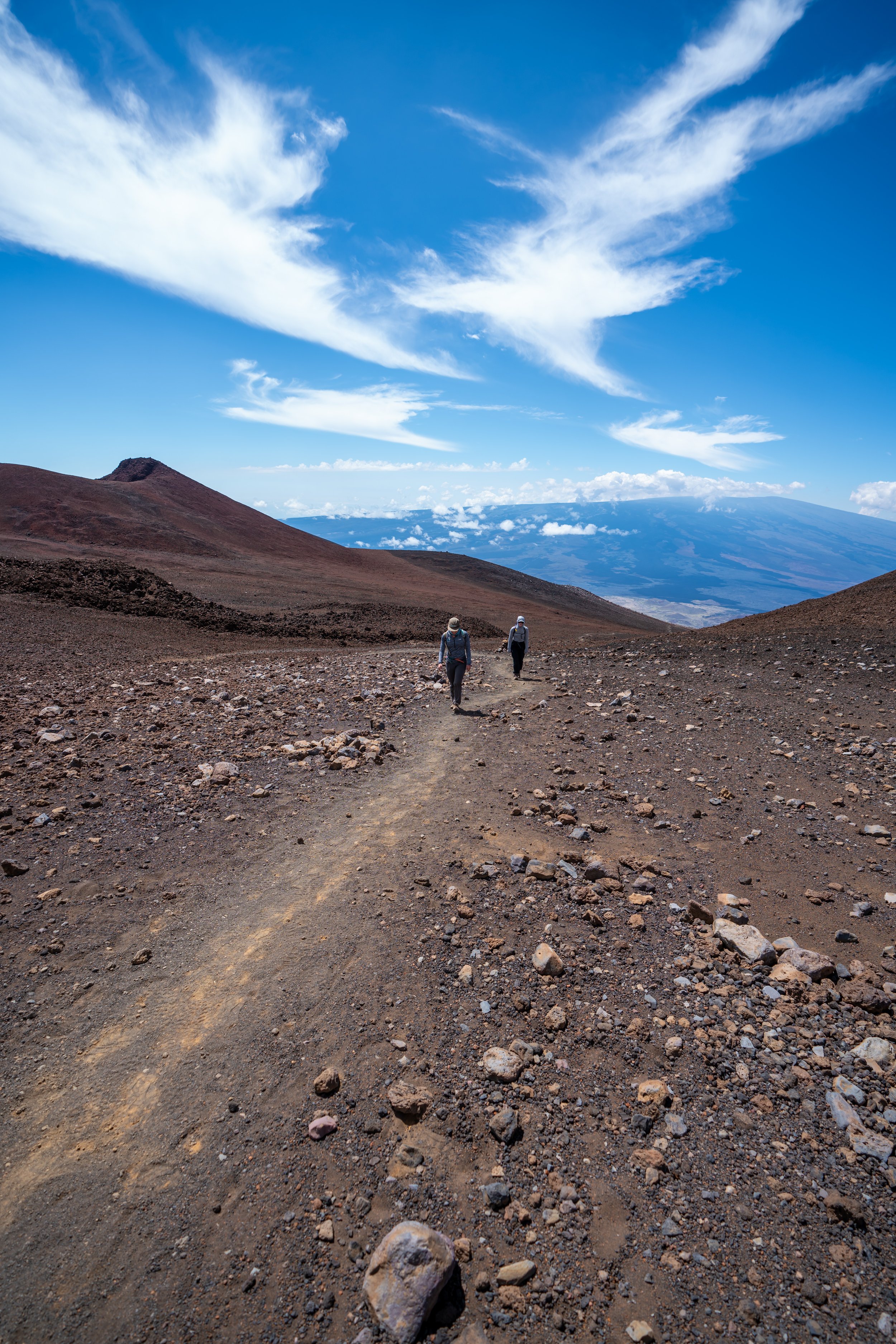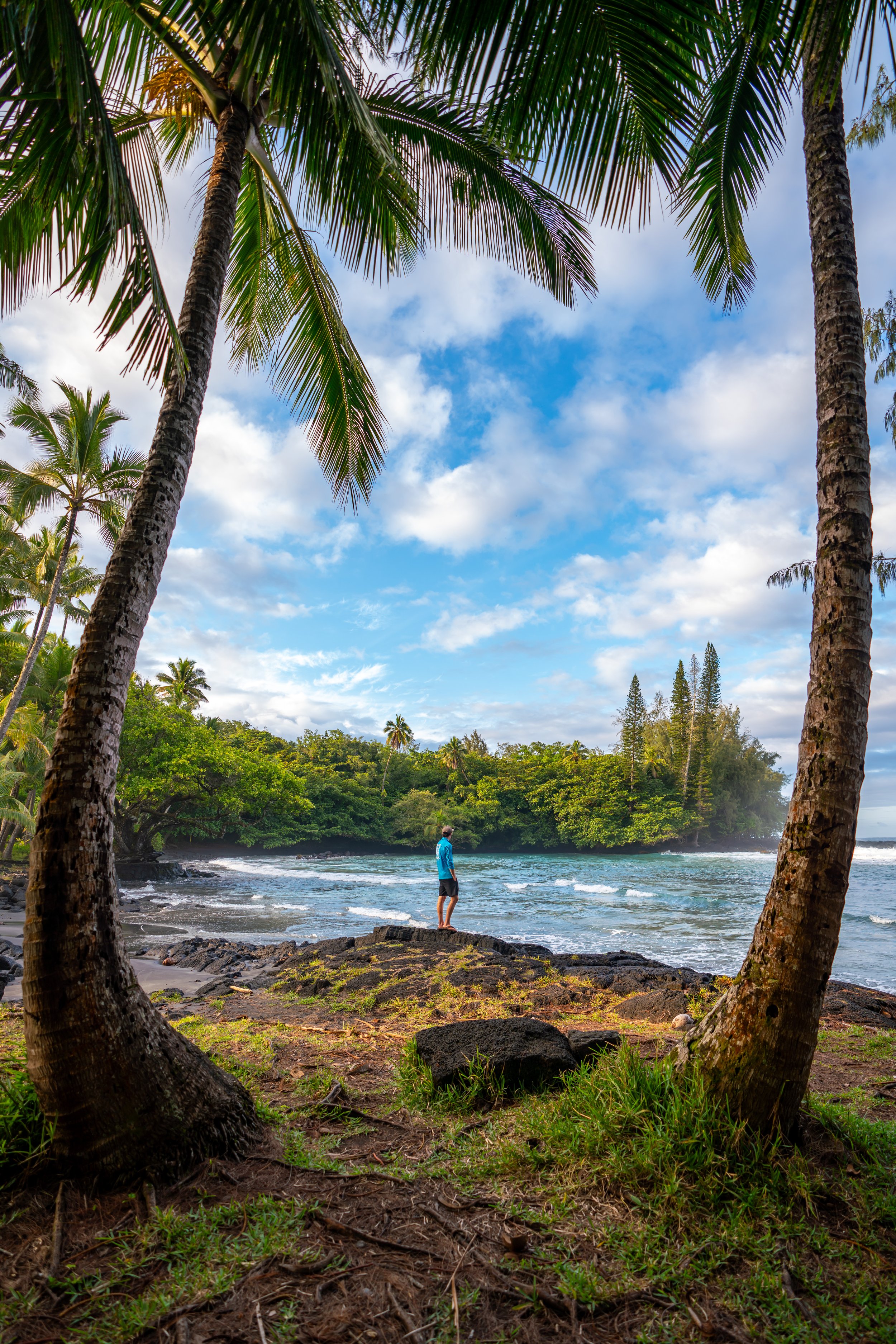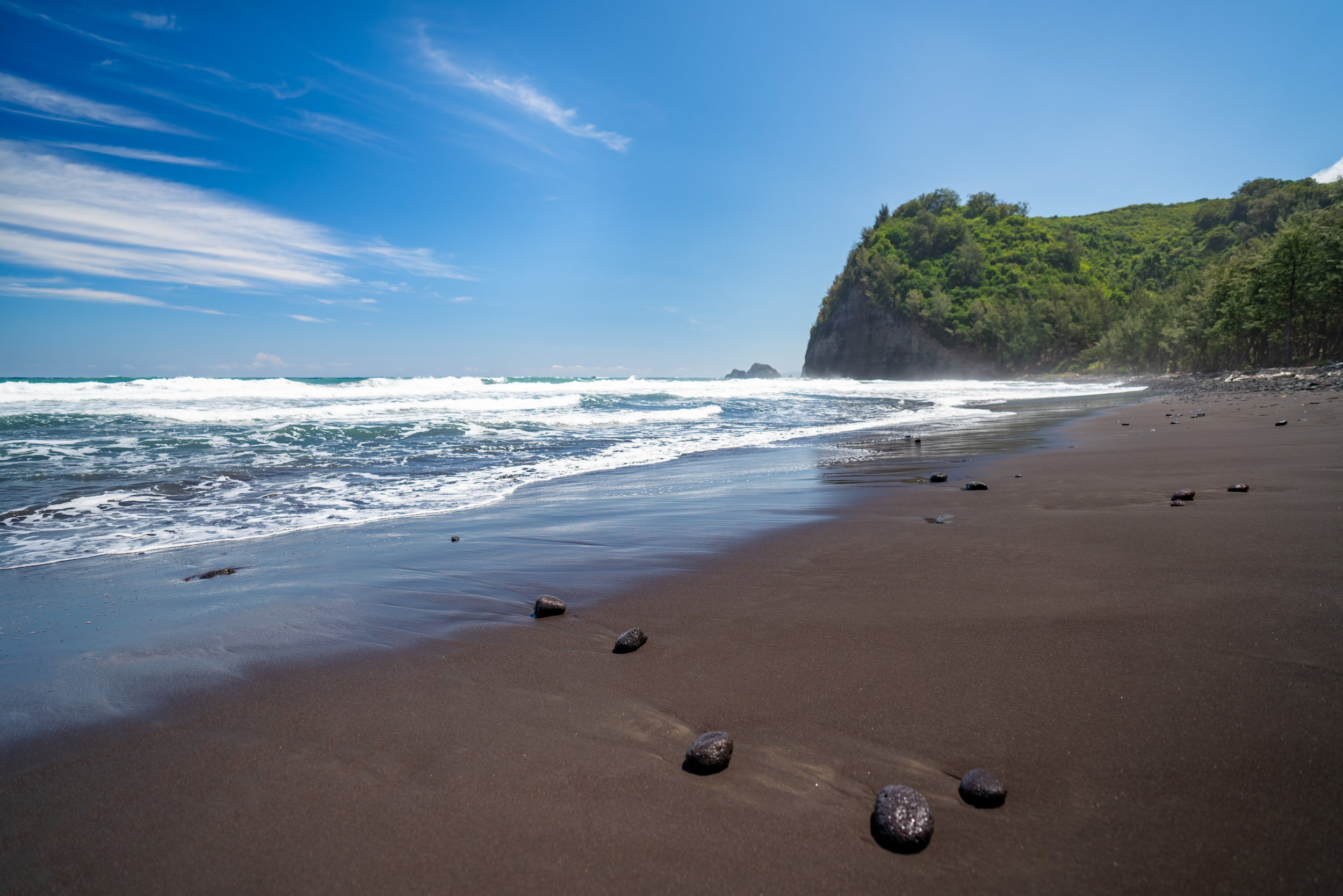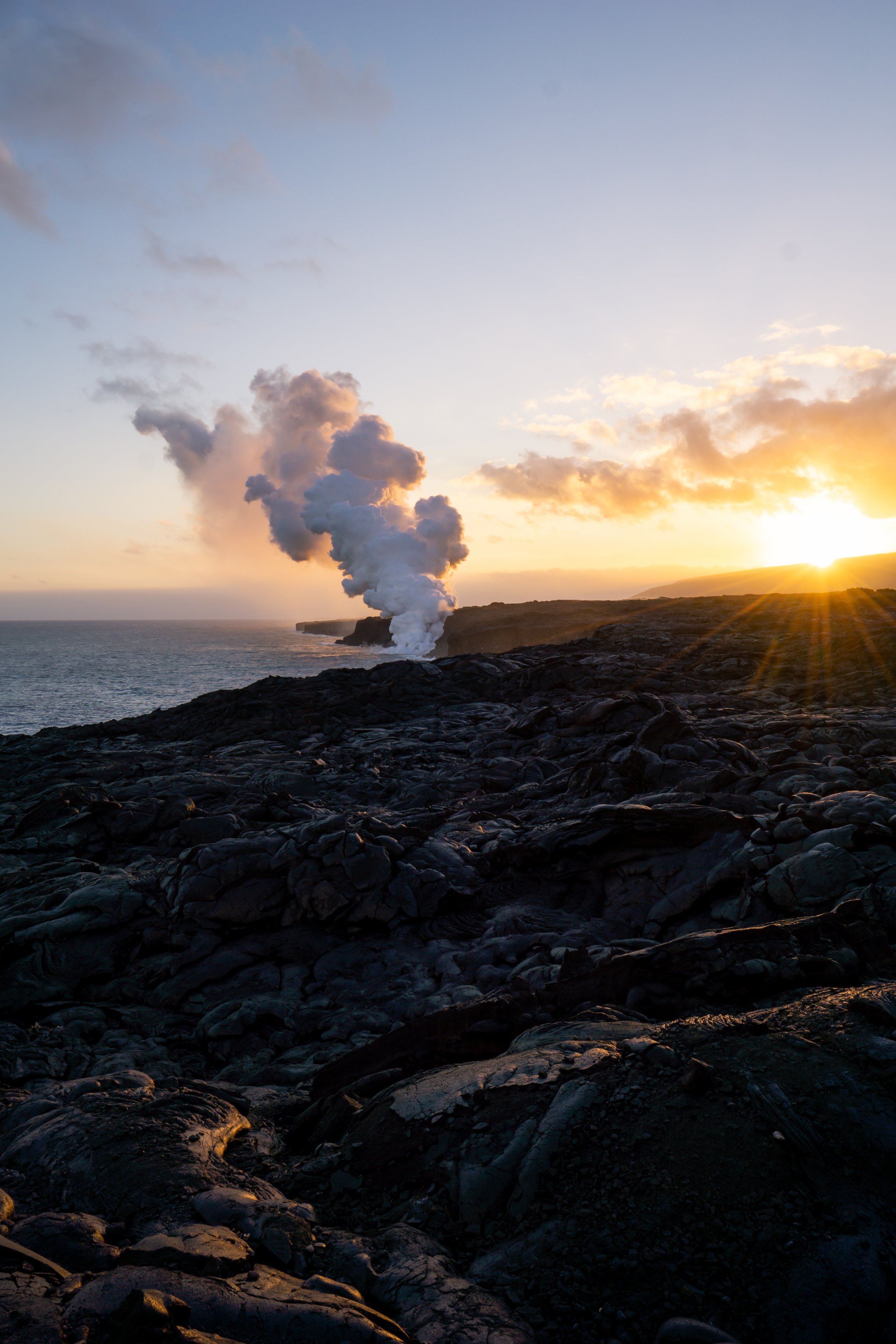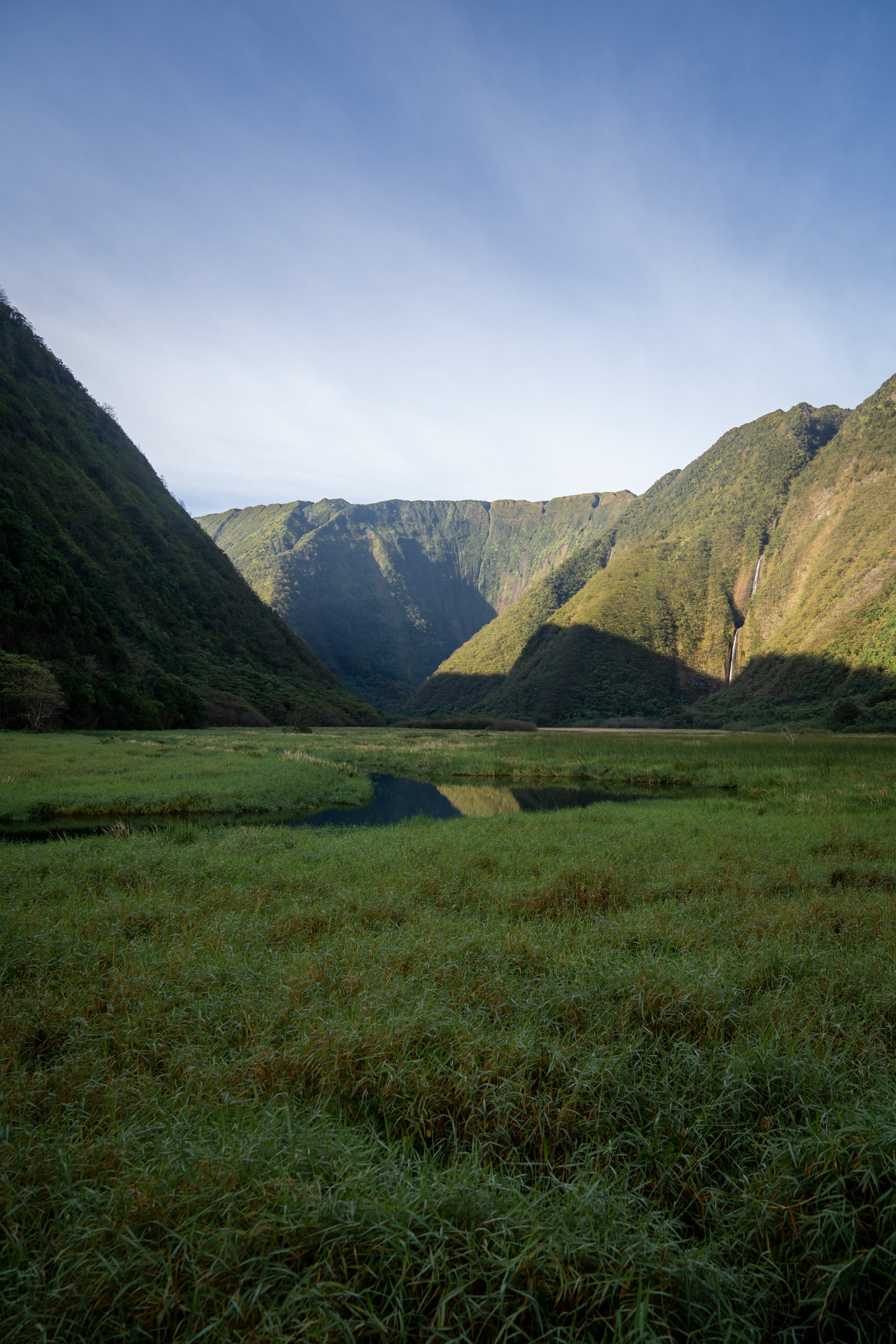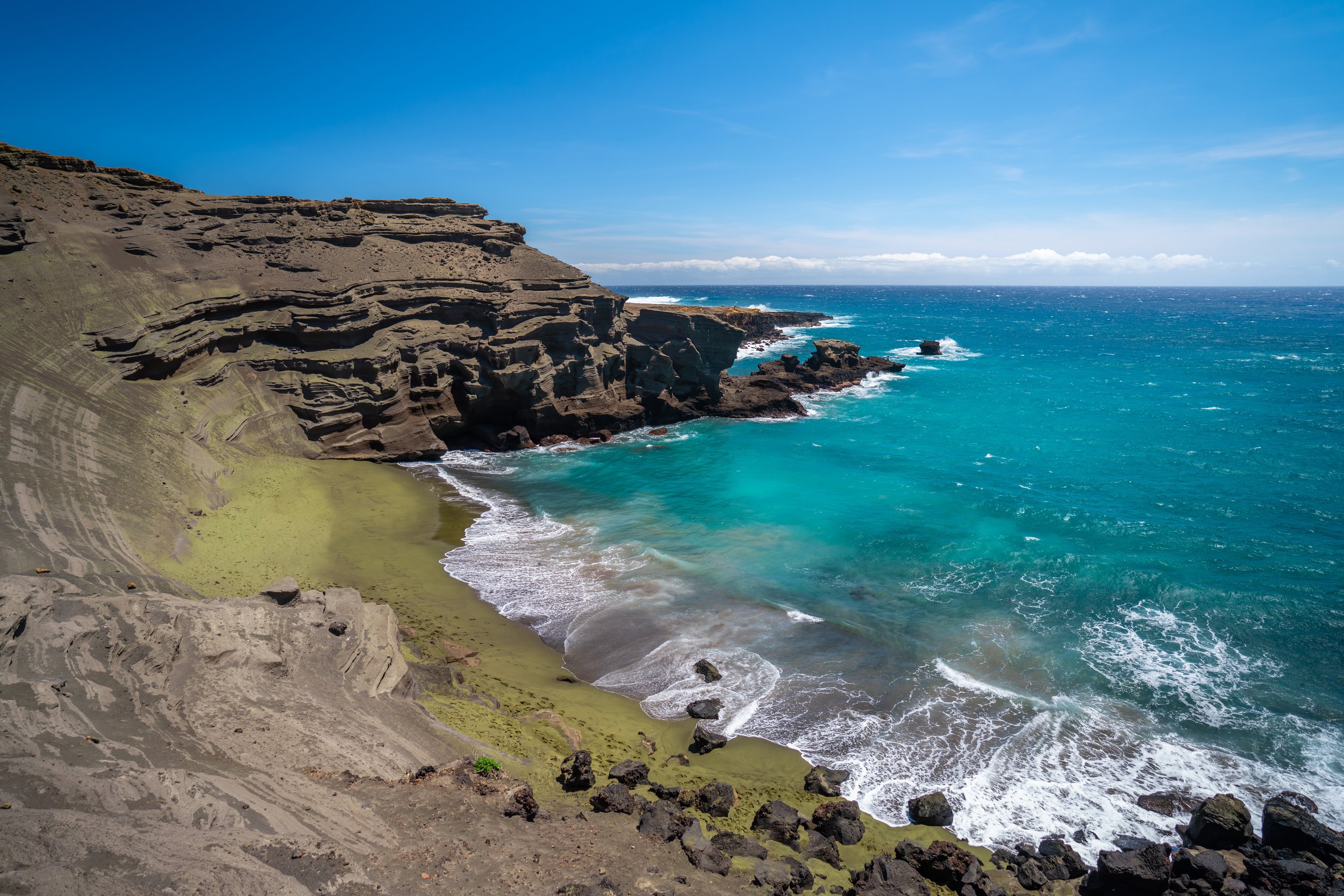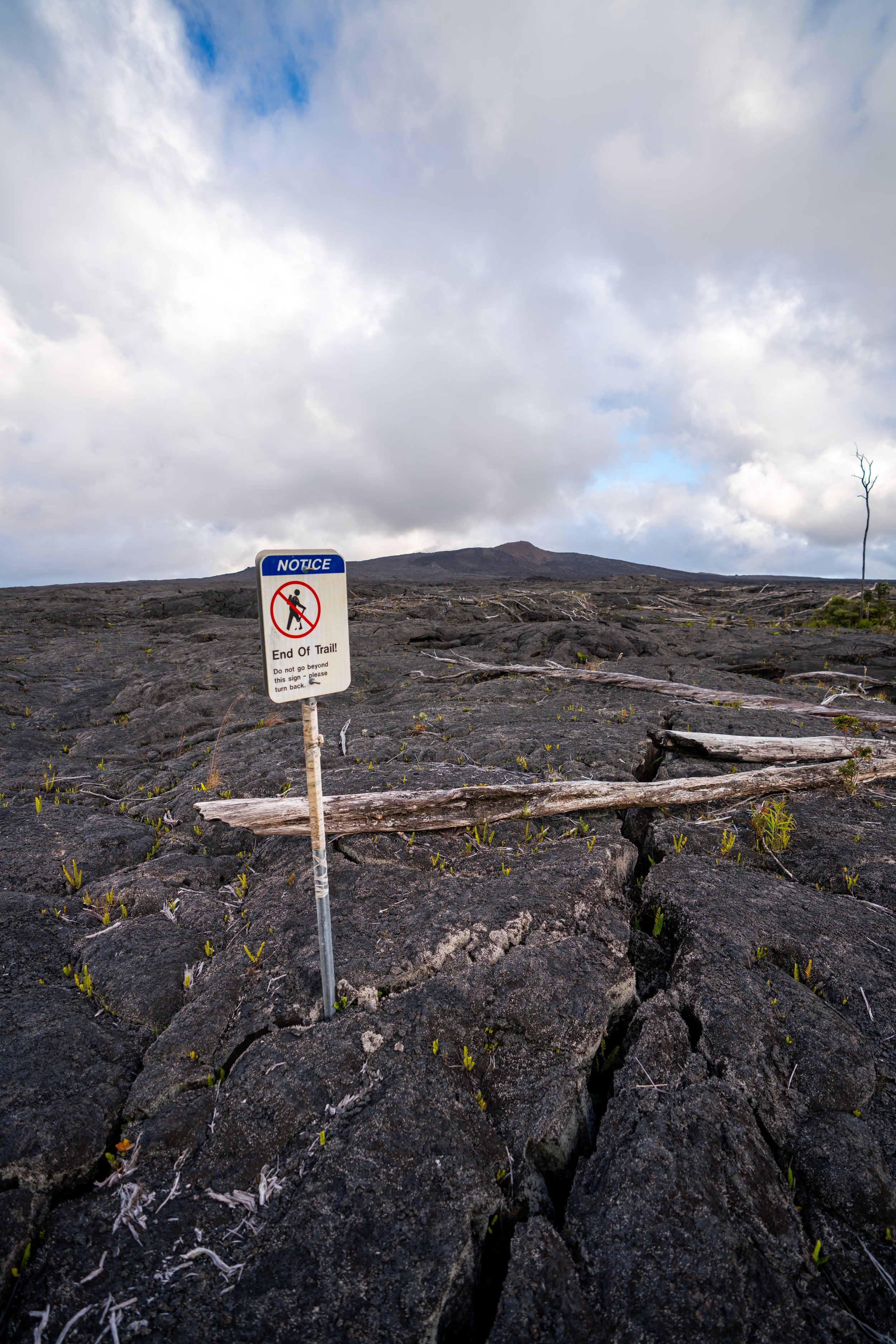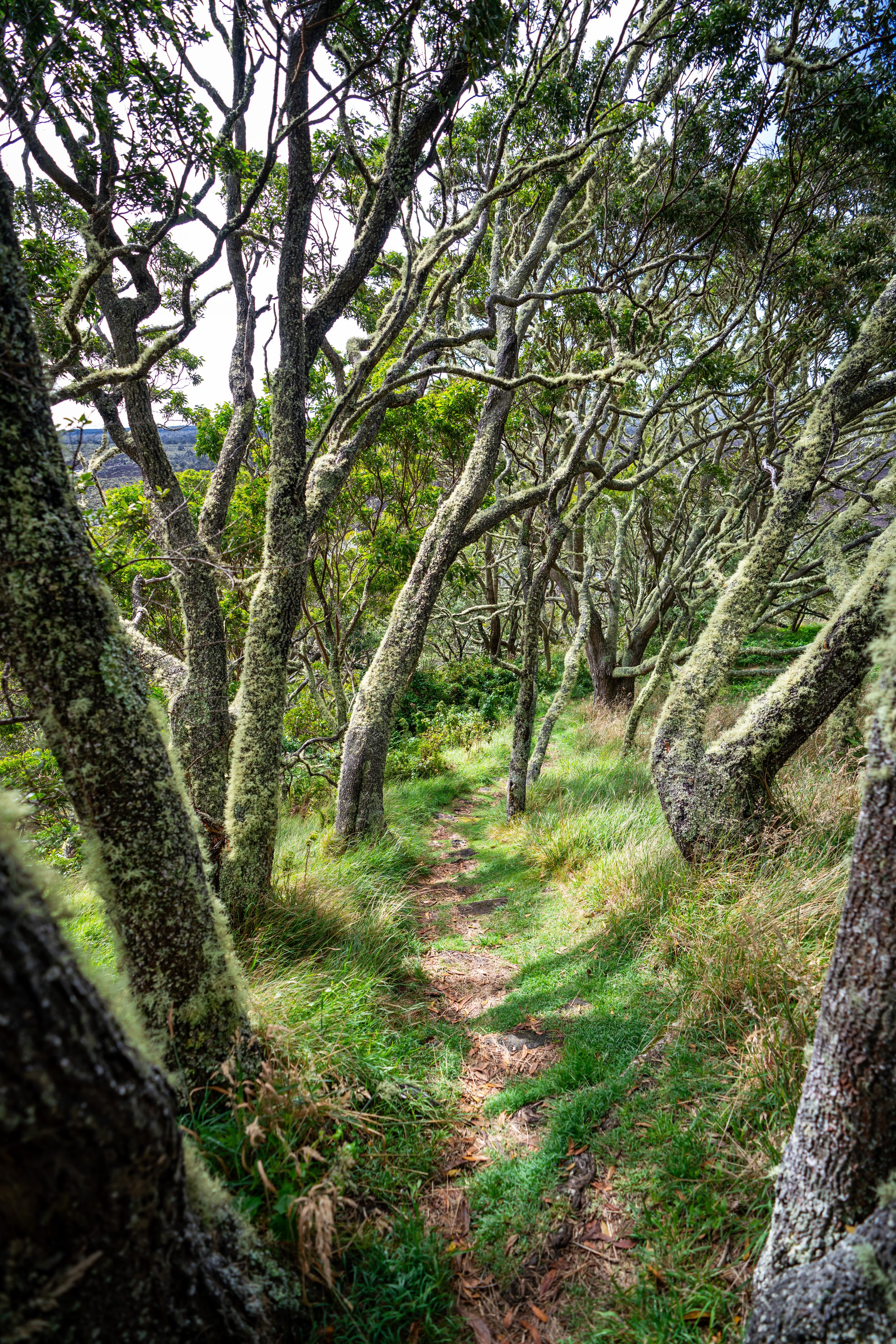Hiking the Kaūmana Trail on the Big Island of Hawaiʻi
Distance (One Way): 1.5 miles / 2.4 km
The Kaūmana Trail on the Big Island of Hawaiʻi is a relatively easy day hike off Saddle Road that traverses it’s way across an old volcanic lava flow through a vibrant native ʻŌhiʻa lehua-dominated forest!
That said, this sprawling ʻŌhiʻa forest off Saddle Road is one of the best trails on the Big Island where hikers can see a variety of native Hawaiian plants and birds, such as the ʻIʻiwi and ʻApapane, as Kaūmana sits roughly 5,000 ft. (1,524 m) above sea level, away from the denser mosquito habitats that have decimated native bird populations at lower elevations.
All this to say, Kaūmana makes for a beautiful, quick adventure whether you’re staying in Hilo or Kailua-Kona, and it’s a great trail to check out when visiting nearby areas or trails, like the Kaulana Manu Nature Trail and the Humuʻula Trail to the Mauna Kea Summit.
Kaūmana Trailhead Parking
Parking for the Kaūmana Trail is located in either one of two trailheads directly off Saddle Road.
Personally, I like starting at the lower Kaūmana Trailhead to go uphill first, but the hike could just as easily be started in reverse.
Google Maps Directions: Lower Kaūmana Trailhead
Hiking the Kaūmana Trail
As previously mentioned, there are two trailheads for the Kaūmana Historic Trail, but I typically choose to begin this hike from the bottom. However, it really just depends on whether you would rather hike uphill first or on the return trip.
Overall, the Kaūmana Trail only gains about 300 ft. (91 m) of elevation, which is hardly noticeable over the total 1.5-mile (2.4 km) one-way distance.
For the most part, the Kaūmana Trail is very easy to navigate, especially since the trail parallels Saddle Road just to the north.
On top of this, Kaūmana traverses a pāhoehoe lava flow, meaning that it’s a very solid hiking surface with no mud, even in the rain!
If you’re hiking the Kaūmana Trail to see some of Hawaiʻi’s native birds, I can tell you from experience that you’re more likely to see the ʻIʻiwi and ʻApapane early and late in the day, as well as when there is an abundance of ʻŌhiʻa lehua flowering!
ʻŌhelo ʻai is an edible native Hawaiian plant, but I’ll let you be the judge. There are three native ʻŌhelo species in Hawaiʻi, with a few hybrids, but some would tell you that certain species taste better than others.
From experience, the deeper the red, the better tasting the berries will be.
Toward the upper end of Kaūmana, the trail begins to turn back toward Saddle Road, which can be seen in the photo below.
Upper Kaūmana Trailhead
In my experience, it seems that more hikers prefer to start at the lower Kaūmana Trailhead than the upper, but regardless, there will always be some mild elevation gain, whichever way you decide to go.
Native Plants on the Kaūmana Trail
The Kaūmana Trail is one of the best trails on Hawaiʻi Island to see a beautifully intact native Hawaiian forest.
On Kaūmana, you can expect to see ʻŌhiʻa, ʻŌhelo ʻai, Kōlea lau nui, Hāpuʻu, Uluhe, Paʻiniu, and ʻŌlapa, to truly name only a few.
To learn more about identifying these and many other native plants from across Hawaiʻi, check out my separate post below.
Read My Separate Post: Native Hawaiian Plant Guide



